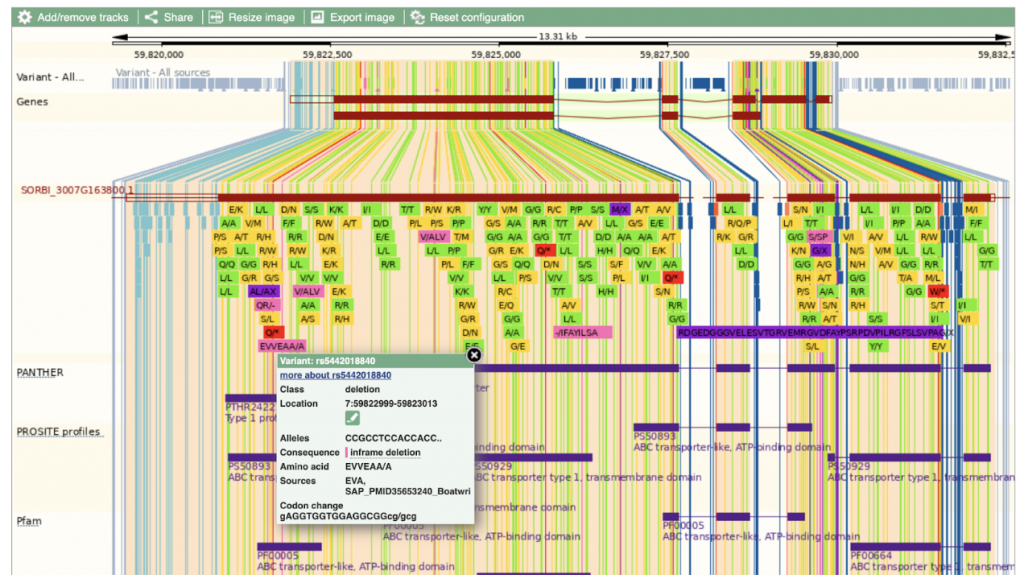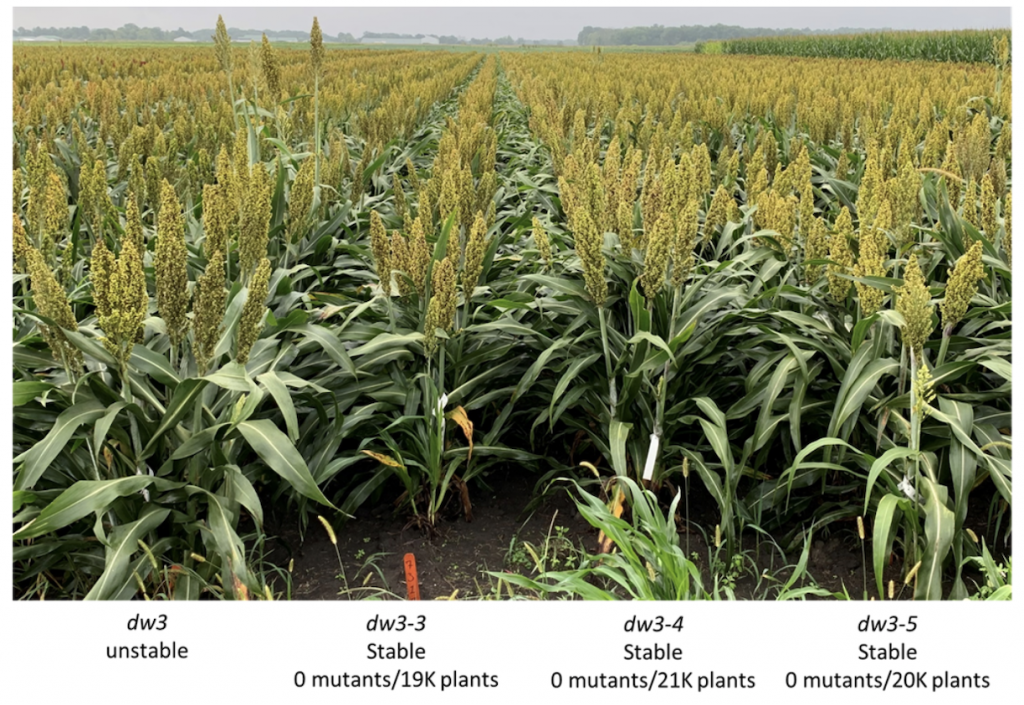Identification and Validation of Stable Dwarf3 Alleles for Enhanced Height Stability in Sorghum
Dwarfism in crop plants, such as sorghum, is beneficial for enhancing lodging resistance, enabling the use of mechanical harvesting techniques and optimizing fertilizer use efficiency. A stable dwarf gene would reduce the need for roguing, which involves removing tall mutants from seed production fields. Scientists from Purdue University focused on the sorghum dwarf3 (Dw3) gene, particularly the unstable dw3–ref allele, which reverts to wild-type at a frequency >0.001 in multiple backgrounds. They aimed to identify stable Dw3 alleles to maintain consistent plant height and targeted deletions and insertions as they disrupt protein function and consequently have good potential for developing stable dwarf phenotypes. Screening a sorghum diversity panel revealed three new mutations: an 82 bp deletion (dw3–sd3), a 6 bp duplication (dw3-sd4), and a 15 bp deletion (dw3-sd5). Field trials of these genotypes confirmed the stability of these dwarf phenotypes, with no wild-type revertants observed. Subsequent backcrossing into the Tx430 line and field trials of the backcrossed progeny (BC2F4) affirmed the stability of the dwarf trait, with height and flowering time consistent with the parent generation. These findings underscore the potential of the new stable dw3 alleles (dw3-sd3, dw3-sd4, and dw3-sd5) for improving agronomic performance and reduced production costs in sorghum breeding programs.
Sorghum height mutants contribute to increased cost of goods in seed production and appear unsightly in commercial grain production fields. The dw3-sd3, dw3-sd4, and dw3-sd5 alleles described in this paper provide plant breeders with new genetic resources to produce dwarf-stable parent lines and hybrids to improve the sorghum crop. – Tuinstra
SorghumBase example:

Reference:
Diatta-Holgate E, Bergsma B, Tuinstra MR. Mutations in the dwarf3 gene confer height stability in sorghum. Plant Genome. 2024 May 19:e20466. PMID: 38764298. doi: 10.1002/tpg2.20466. Read more
Related Project Websites:
- Dr. Tuinstra’s page at Purdue University: https://ag.purdue.edu/department/agry/faculty-pages/mitch-tuinstra/
- Sorghum and Millet Innovation lab at Purdue University: https://ag.purdue.edu/department/ipia/what-we-do-pages/international-research/sorghum.html


